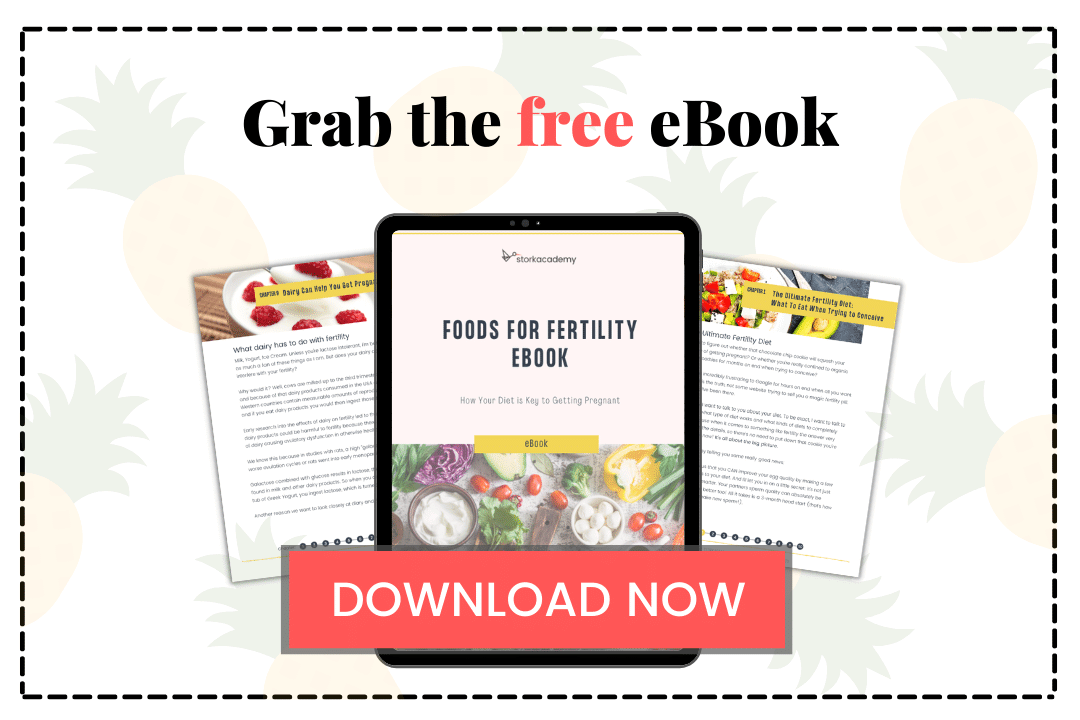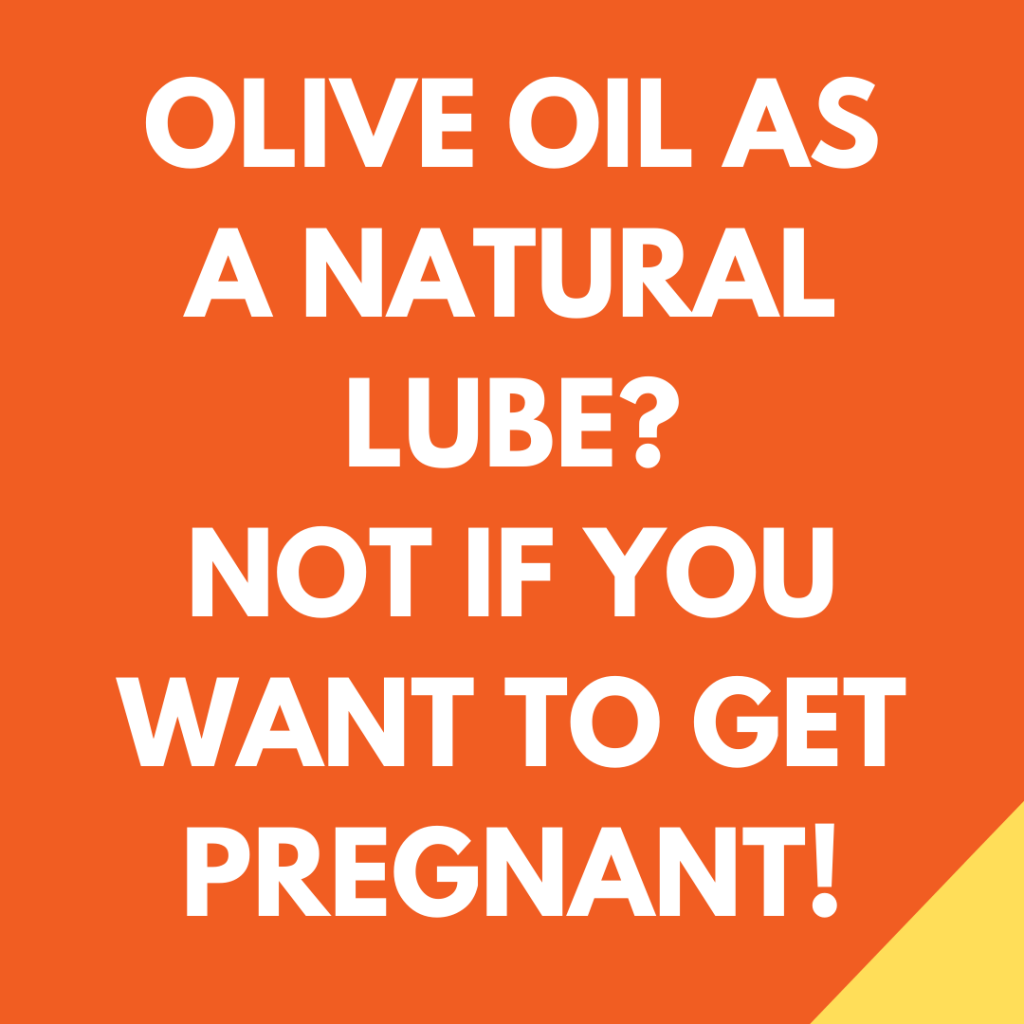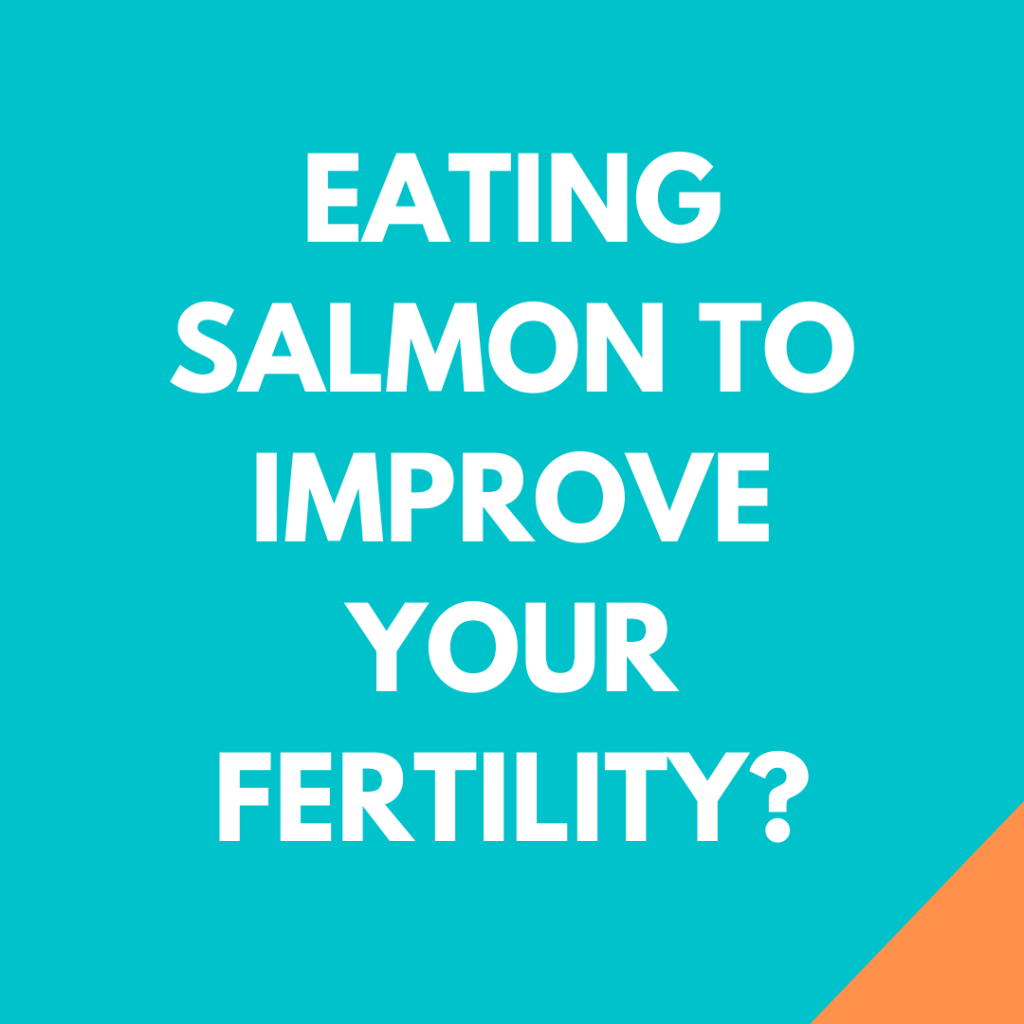We may earn a commission from affiliate links on this page.
In part 7 of my Foods for Fertility series, I’ll tell you all about whether your coffee habit is a bad idea when trying to conceive, or if it’s all overblown.
Want to know more about how to optimize your fertility though diet? Enjoy these free Foods for Fertility blog posts:
Part 1. The Ultimate Fertility Diet: What To Eat When Trying to Conceive
Part 2. Meat, Poultry, Fish, Tofu: Which Protein is Best and Which is Worst for Fertility?
Part 3. Definitive Guide to Fats That HELP Fertility: Omega-3 and Other Fatty Acids
Part 4. Definitive Guide to Fats That HURT Fertility: Saturated Fats and Other Fats
Part 5. Sugar and Other Carbs Suck When Trying to Conceive
Part 6. Artificial Sweeteners When Trying to Conceive or Pregnant: Bad Idea?
Part 7. Two Reasons Coffee is Bad When Trying For a Baby
Part 8. Can I Drink Alcohol When Trying to get Pregnant?
Part 9. Dairy Can Help You Get Pregnant – Everything You Need to Know
Part 10. 10 Fertility Diet Tips to Implement Today
The quick win
Wait! Before you continue reading, consider doing ONE easy thing that is known to boost fertility: taking a daily high-quality prenatal multivitamin. This is without doubt the easiest way to boost your fertility (here’s why). Personally, I love the Smartypants prenatal gummy (because it’s good and tastes yummy) and the Nature Made prenatal vitamin with DHA (because it contains all kinds of goodies that boost fertility and is a trusted brand). (affiliate links)
Coffee, caffeine and how it influences fertility

If you’re anything like most other women -62% of other women to be exact- coffee is big a part of your daily routine.1
One cup of coffee contains about 100mg of caffeine, which may not sound like a lot, but it’s enough to get most people’s engine running in the morning!
Caffeine is perhaps the most researched dietary factory in the context of fertility. Already back in the early 1970’s, a study suggested that high doses of caffeine could negatively affect the pregnancy rate of female mice.2
And since then, dozens of studies have come out showing some rather conflicting results, ranging from: caffeine is detrimental to your fertility to caffeine does not really influence fertility at all!3,4,5
The underlying idea is that caffeine can interfere with estrogen levels, and that coffee specifically contains bioactive substances belonging to the “phytoestrogen” family. These phytoestrogens are compounds that can easily bind to estrogen receptors, thereby influencing your reproductive system.
Enough biology! Let’s look at whether caffeine intake actually negatively impacts your chance of conceiving.
The case for why drinking coffee is OK

Many studies, small and large, have investigated whether among couples trying to conceive naturally the intake of caffeine could in any way lower the odds of becoming pregnant.
And the evidence mostly points into the direction of: no. Fertility does not seem to be greatly affected by caffeine intake, at least not at normal intake levels.
In a large 2017 study which analyzed the results of dozens of studies spanning several decades,6 the researchers found no evidence that caffeine intake has any influence on the odds of becoming pregnant. They also found that women who consume caffeine are just as likely to become pregnant within 12 months than women who completely avoid caffeine.
They did, however, find that caffeine consumers have slightly lower odds of conceiving within 6-months of trying.
In other words, if you’re a coffee drinker then it could take a tad longer to get pregnant, but overall, you’re not worse off.
Coffee and IVF
To expand on these findings, several IVF studies have looked at the same question: “does caffeine negatively affect the odds of becoming pregnant?”.7
Researchers asked women about their caffeine habits prior to and during an IVF cycle. Of the five IVF studies done to date, one found estrogen levels to be decreased as a function of caffeine intake,8 but no study could find a link with caffeine and number of eggs retrieved, embryo quality, implantation rate, or pregnancy rates.8,9,10,11,12
Just one single study, one of the earliest studies looking at this from back in 2002, found a link between preconception caffeine intake and lower live birth rates but not lower pregnancy rates. This means that -in this study- women who consumed caffeine could get pregnant, but had a slightly higher chance of miscarriage.11
Taking all the evidence together, it’s safe to say that caffeine in low to moderate amounts is very unlikely to negatively impact your odds of conceiving. But, that one IVF study finding lower odds of live birth does bring up one very important point:
Does caffeine increase the risk of miscarriage?

Several studies find a link between miscarriage and caffeine consumption during pregnancy. And this is important because one of the main reasons couples have trouble conceiving is early or very early miscarriages.
In fact, most miscarriages happen without you even knowing it. The detrimental effect of caffeine is found in study after study,6 and it appears to be “dose-dependent”.
The more caffeine you consume the higher the odds of miscarriage. At 100mg of caffeine per day, the risk of spontaneous abortion is about 10% higher than in women who do not consume any coffee.6,13 And recent research comparing all high-quality publications from the past decades found that at 300mg of caffeine the risk of miscarriage was 37% higher and at 600mg the risk was more than double.
In case you were wondering, an 8 ounce cup of coffee has about 100mg of caffeine, but a Grande from Starbucks contains 330mg of caffeine.14 That’s right, one Grande coffee and the risk of miscarriage is already more than a third higher than somebody who sticks to decaf!
So to really optimize your fertility you need to look ahead, and that means at your eventual pregnancy too. It is rather clear that it is beneficial to limit your coffee intake to a maximum of 2 cups per day,15 or even better, avoid it or settle for decaffeinated coffee and tea.
Now, I wish I could give you some more time to get used to the idea of drinking less coffee during early pregnancy, but the pain doesn’t end there.
That’s because it’s not enough to limit coffee during pregnancy. Research suggests that to minimize the added risk of miscarriage, it’s important to already avoid caffeine when you’re actively trying to conceive.16,17,18
Should I quit drinking coffee when trying to get pregnant?
Several studies from the last 30 years have found that coffee or caffeine intake before pregnancy can slightly increase miscarriage rates.17,18,19
The largest study to date was published in 2018, here Harvard researchers used the huge Nurses Health Study database to look at among more than 11,000 women whether coffee consumption before pregnancy could increase miscarriage rates once women do become pregnant).16
They found that there was a 20% higher chance of miscarriage for women who drank 4 or more servings of coffee before becoming pregnant compared to women with no coffee intake. But total caffeine intake itself, that means coffee, tea and some sodas too, was only weakly related to higher chance of miscarriage. In other words, it seems that perhaps it is specifically coffee that can negatively affect pregnancy viability.19
This study, and all of the earlier studies that investigated pre-pregnancy caffeine intake, suffer from one major methodological flaw. A flaw that makes me doubt whether pre-conception caffeine intake is really all that bad… Women who consume more coffee before getting pregnant are much more likely to keep consuming coffee after becoming pregnant too…
Heck, many women out there don’t even know that they are pregnant until the first few weeks of pregnancy have already passed. When these large population studies find that pre-pregnancy coffee consumption has negative consequences, the researchers are probably not only measuring not pre, but also post-conception caffeine intake. 16
So should you stop drinking coffee right now?
If you want to play it safe, id say: switch to decaf. You probably won’t notice the difference and this way you don’t have to worry about potentially increasing your risk of miscarriage.
Say no to energy drinks

It probably goes without saying that most people wouldn’t consider energy drinks to be healthy or part of a healthy diet.
But I do want to touch on this product category for a second because if you do consume energy drinks from time to time, it’s a good idea to hit the brakes. That’s because energy drinks tend to contain a lot of caffeine as well as a whole slew of other ingredients that we won’t get into now.
It makes sense! Caffeine is a called stimulant: it wakes you up exactly what the Energy Drink companies want you to experience! One can of Red Bull contains about 80 milligrams of caffeine,20 similar to 2 cans of Coca-Cola. But a tiny bottle of 5-Hour Energy and many other energy drinks too, contain more than 200 milligrams of caffeine!20,21
In fact, 5-hour energy themselves warn against the use of your drink by pregnant or nursing. So just say no to every drinks.
The bottom line on coffee

Putting it all together, caffeine intake in low to moderate amounts is unlikely to negatively influence your chances of conceiving. That’s the good news.
But there are 2 big reasons why coffee (caffeine) is a bad idea when trying for a baby:
- During early pregnancy -and maybe even before becoming pregnant- caffeine intake could somewhat increase the risk of miscarriage.
- And caffeine can cross the placenta and reach the growing fetus.22 That means your baby will “enjoy” that cup of coffee together with you.
So in the name of optimizing your fertility to the absolute fullest, you might want to try to limit caffeine intake as much as you can.
But if it’s too hard to quit cold turkey then try not to worry about it too much, one cup of coffee or tea is unlikely to have a big impact, but stopping or switching to decaf is definitely the safest option.
References
1. Daily Coffee Consumption Up Sharply. National Coffee Association USA.
2. Thayer, P. S., & Kensler, C. J. (1973). Toxicology and Applied Pharmacology, 25(2), 169–179.
3. Bolumar, F., Olsen, J., Rebagliato, M., & Bisanti, L. (1997). Obst & Gyn Survey 52(8), 487-488.
4. Wilcox, A., Weinberg, C., & Baird, D. (1988). The Lancet, 2(8626-8627), 1453–1456.
5. Hakim, R. B., Gray, R. H., & Zacur, H. (1998). Fertility and Sterility, 70(4), 632–637.
6. Lyngsø, J., Ramlau-Hansen, C. H., Bay, B. et al. (2017). Clinical Epidemiology, 9, 699–719.
7. Mínguez-Alarcón, L., Chavarro, J. E., & Gaskins, A. J. (2018). Fertility and Sterility, 110(4), 587–592.
8. Choi, J. H., Ryan, L. M., Cramer, D. W. et al. (2011). Journal of Caffeine Research 1(1), 29–34.
9. Abadia, L., H. Chiu, Y., Williams, P. L. et al. (2017). Human Reproduction 32(9), 1846–1854.
10. Al-Saleh, I., El-Doush, I., Grisellhi, B. et al. (2010). Medical Science Monitor, 16(12), CR598–CR605.
11. Klonoff-Cohen, H., Bleha, J., & Lam-Kruglick, P. (2002). Human Reproduction, 17(7), 1746–1754.
12. Machtinger, R., Gaskins, A. J., Mansur, A. et al. (2017). Fertility and Sterility, 108(6), 1026–1033.
13. Greenwood, D. C., Thatcher, N. J., Ye, J. et al. (2014). Eur J of Epidemiology, 29(10), 725–734.
14. Lutz, A. (2013). One Grande Coffee Contains Almost The Entire “Daily Safe Dose” Of Caffeine.
15. American College of Obst and Gyn. (2010). Obstetrics and Gynecology, 116(2 Pt 1), 467–468.
16. Gaskins, A. J., Rich-Edwards, J. W., Williams, P. L.et al. (2018). Eur J Nutrition, 57(1), 107–117.
17. Infante-Rivard, C., Fernández, A., Gauthier, R. et al. (1993). JAMA, 270(24), 2940–2943.
18. Tolstrup, J. S., Kjaer, S. K., Munk, C.et al. (2003). Human Reproduction , 18(12), 2704–2710.
19. Fenster, L., Hubbard, A. E., Swan, S. H. et al. (1997). Epidemiology , 8(5), 515–523.
20. McCusker, R. R., Goldberger, B. A., & Cone, E. J. (2006). J Analytical Toxicology, 30(2), 112–114.
21. DeNoon, D. J. (2012). How Much Caffeine Is in Your Energy Drink?
22. Hinds, T. S., West, W. L., Knight, E. M., & Harland, B. F. (1996). Nutrition Reviews, 54(7), 203–207.




